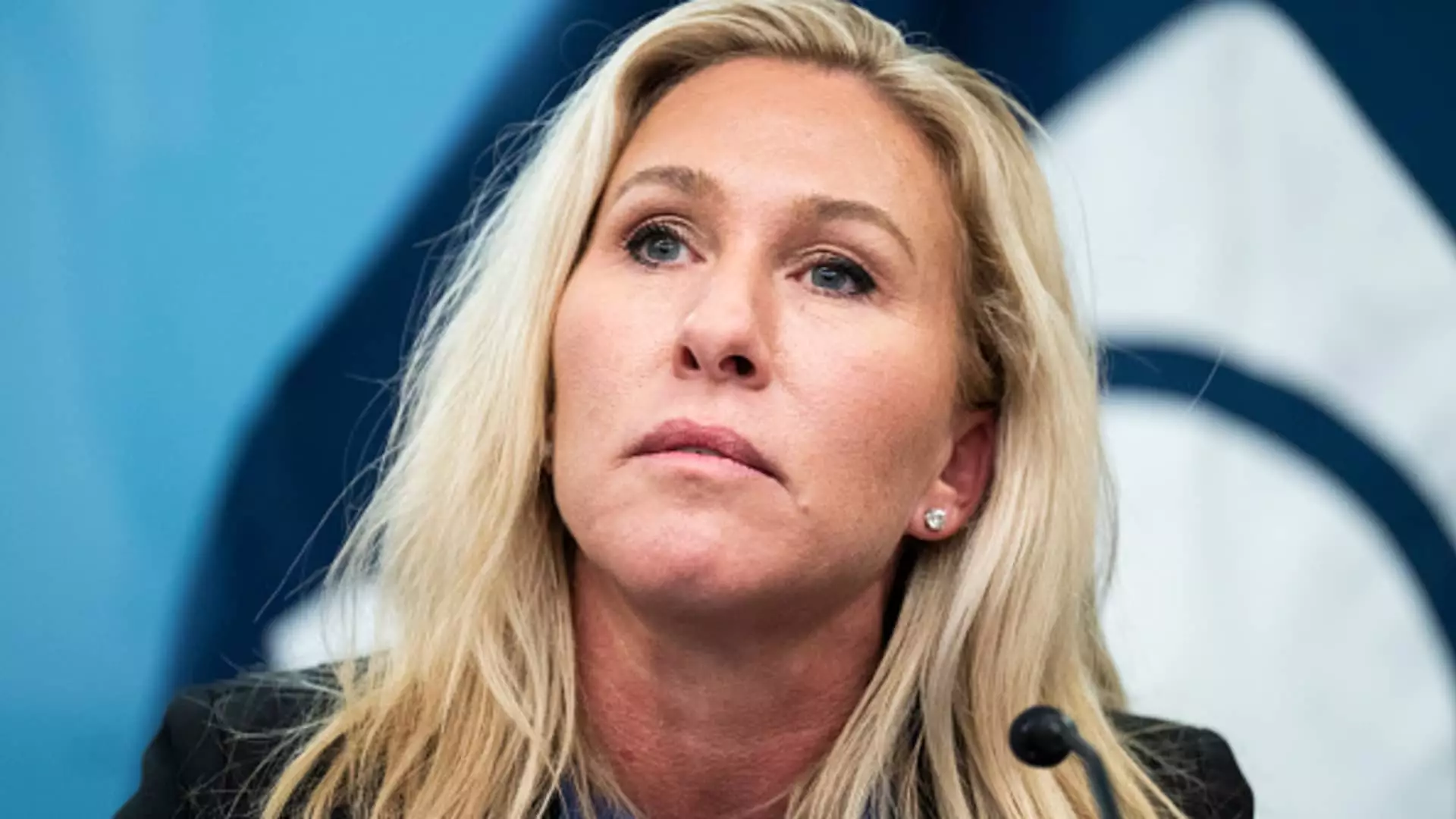The political landscape in the United States is perpetually shifting, with new alliances and subcommittees emerging that reflect the evolving priorities of those in power. One of the most intriguing developments is Rep. Marjorie Taylor Greene’s appointment as chair of a new House subcommittee dedicated to enhancing government efficiency. This endeavor is notable not just for its ambitious goals but also for the powerful figures associated with it, including tech magnate Elon Musk and entrepreneur Vivek Ramaswamy.
The Subcommittee on Delivering on Government Efficiency, commonly referred to by its DOGE acronym, signals a convergence of political and corporate interests that aims to scrutinize federal operations critically. Greene’s collaboration with notable figures like Musk and Ramaswamy seems to represent a strategic maneuver to amplify her influence and formalize her crusade against perceived bureaucratic inefficiencies. This initiative arises in the context of increasing public disillusionment with government processes, a sentiment that Greene has capitalized on by promising transparency and a reduction of unnecessary government roles.
Greene’s vision, as articulated in her statements, revolves around targeting what she describes as a bloated bureaucracy. She suggests that the path to enhanced efficiency involves not only identifying wastefulness but also invoking a more aggressive approach to holding government officials accountable. By publicly committing to the firing of entrenched bureaucrats, Greene aims to position her subcommittee as a radical force for reform in an often stagnant governmental framework.
Crucially, the initiative is not just Greene’s solitary endeavor; it is bolstered by collaboration with figures of significant economic and cultural capital. Musk, known for his electric vehicles and space exploration efforts, and Ramaswamy, a rising figure in the political sphere, have both articulated their commitment to government efficiency. Their involvement brings an innovative, outside-the-box perspective that contrasts sharply with traditional governance. Ramaswamy’s spokesperson highlighted the philosophy that exposing government inefficiencies to the public is essential for meaningful reform, suggesting a public engagement strategy that resonates with Greene’s populist messaging.
This collaboration raises questions about the intersection of public policy and private interests. While Greene and her collaborators frame their efforts as a noble drive for efficiency, critics may argue that such initiatives could disproportionately benefit corporate entities or exacerbate existing inequalities by undermining employee protections within government ranks.
Greene’s assertion that “no topic will be off the table” signifies an aggressive approach to oversight that may lead to significant departures from prior congressional practices. The declared intent to pursue comprehensive investigations into government waste carries the promise of unprecedented scrutiny into how taxpayer dollars are spent. Whether this approach translates into tangible results remains to be seen, but it certainly sets the stage for a contentious political climate.
While Greene previously faced significant backlash—including the stripping of her committee assignments due to controversial remarks—her newfound power within this subcommittee illustrates a remarkable turnaround. It underscores a shift in the Republican Party toward figures who embody the party’s populist and confrontational spirit. House Oversight Chairman James Comer’s support amplifies this trend, indicating a willingness within the GOP to embrace a more radical approach to governance.
The formation of the DOGE subcommittee could yield valuable insights into government inefficiencies if it successfully harnesses a collaborative spirit with experts and stakeholders. Stripping away layers of bureaucracy and promoting efficient practices could lead to a shift in attitudes regarding government operations—fostering a more dynamic relationship between citizens and their elected officials.
However, there are inherent risks associated with such a powerful alliance. The push for aggressive accountability could lead to motivated firings that prioritize political loyalty over competence. There is a growing concern that ideological purity could overshadow the complexity of governance, potentially leaving crucial roles unfilled or filled with unqualified individuals.
Greene’s leadership of the new House subcommittee represents more than just an effort to streamline government operations; it is emblematic of broader political trends that prioritize populist rhetoric in the quest for reform. As this initiative unfolds, it will be essential to monitor its impacts on governance, public accountability, and the future of bipartisan cooperation in Congress. Ultimately, the DOGE subcommittee may prove to be a pivotal moment in the ongoing evolution of American political governance.


Leave a Reply